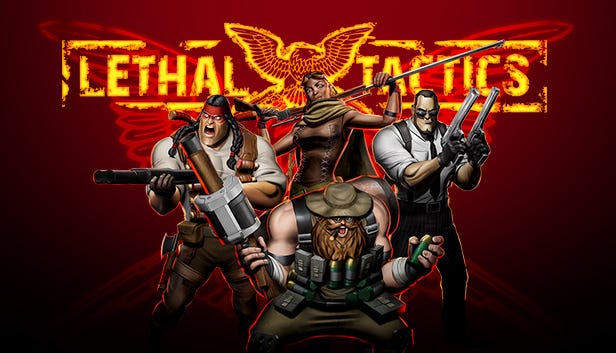
Featured Blog | This community-written post highlights the best of what the game industry has to offer. Read more like it on the Game Developer Blogs or learn how to Submit Your Own Blog Post
How we (didn’t) name TASTEE
This is the story of how we changed the name of our game 3 times. This isn’t an advice article, or a “here’s what we learned” article. This is a quick story about our struggle to name our game. Hopefully you’ll find some value, or at least a good laugh.

This is the story of how we changed the name of our game 3 times (twice while we were live). This isn’t an advice article, or even a “here’s what we learned, apply it” article. This is just a quick story about our struggle to name our game. Our journey was far from perfect, it was full of potholes and we still don’t know how it will turn out, but hopefully you’ll find some value in it (as we did), even if it’s just a good laugh.
With so many fantastic games on the market today, the name of your game can mean the difference between a click on your banner and being passed over for the next title on the list. It sets up the tone and theme, which will (hopefully) hook players into checking out your game. A great name isn’t going to make you successful, but it can help...a lot.
Starting with a Codename
A lot of projects adopt a codename, for internal use only, to avoid spending large amounts of time coming up with a name in the early development process. Naming can take days/weeks/months of banging your head against the wall, trying to come up with something clever (but not too clever), accessible (but not too generic), evocative (but not too dramatic) etc. Most projects adopt a codename that relates to something either about the company or dev team. For example, on Age of Mythology: Extended Edition we adopted the codename “Project Muffin” due to our lead programmer’s extremely vocal disappointment when I brought muffins instead of donuts to our kickoff meeting. The other reason to adopt a codename is that it protects your game in the case of a leak (for example: this leak , notice Project Muffin?). If there is a leak, then the codename is leaked not the actual project name, so your intellectual property isn’t announced or released before you’re ready to talk about it.
When we began development on our game we chose the codename T.A.S.T.E.E - which stood for Tactical Asynchronous Simultaneous Turn-based (E word we never figured out) Engine. (I also happened to have recently finished watching “Orange is the New Black”, for those of you who get that reference.) Every time I used this codename with someone new I had to explain and justify ‘TASTEE’, and every time there was a similar response: “Why would a game about deep tactical gun battles have a cutesy name?” After the initial intrigue, it very quickly grew on people. It even began to shape our internal meeting names and discussions: “Defining Delicious” “The um in yum”, “Battered bombing”, etc. The name TASTEE began to influence the development of the game, adding a level of depth and humour.
Searching for an Announcement Name
The name you announce with SHOULD be the name you launch with: this is the actual name of the game, not the codename. When it came time for us to announce, we knew we couldn’t announce the game as TASTEE because we thought people would be confused about what the game was. So it was finally time to invest the energy and come up with our game’s real name.
A “blue-sky”/anything goes name search is a hell I wouldn’t wish on my worst enemy. Blue-sky is an open-ended group discussion with no boundaries, everyone has an opinion and the sky’s the limit. It’s brutally hard to narrow in on anything, there’s no context so it’s very difficult to decide why one name might be better than another.
So, we defined a few key elements we needed our title to hit, creating parameters that helped us get specific:
Having the word “tactics” in the title seemed like a good starting point. We knew we wanted to focus on the fact that this was a tactical game and not just a strategy game. With many “___ Tactics” titles on the market, we anticipated that gamers would immediately recognize the style of game from the title and therefore be drawn to it.
We decided to keep the title fairly generic so as to appeal to the widest audience possible.
We needed to capture the fact that the game was all about guns and violence.
After much brainstorming and intense discussions, some extensive google searching, international name searching, and domain name searching, we were sure we had an easy to remember, descriptive, and legally sound name for our announcement: we were officially “Armed Tactics”.

Nope! Legal trouble
Not long after we announced and we had our store page up and we had begun our marketing efforts, we got a “Copyright Infringement Notice” from a video game publisher. Apparently, our brand new title was infringing on one of their product names. While we didn’t feel quite the same way, this company was significantly larger than ours. Rather than getting into a fight with a goliath we chose to change our name again, despite all the work we’d put into coming up with “Armed Tactics”. So, we went back to the drawing board with the team, but this time we had a bit more focus. Having been through the process already we had a solid foundation to work from. 24 exhausting hours later we finally landed on “Lethal Tactics”. (It was for the best, Lethal Tactics is a better name anyways, right?) Domain name registered, steam page updated, pack art updated, and we were on our way to Early Access Release.

Early Access Feedback
We had a great launch into Early Access! We got a ton of great feedback on the game’s core mechanics and balancing and we were fortunate enough to have a booth at PAX prime, where we got to see how people interacted with our game in the wild. While PAX was a generally positive experience, it was there that we began to get a hint that something was off. The name wasn’t invoking the reaction we were hoping for. Where we wanted to generate excitement for a game about raw tactics, we found that instead people were skeptical about another “___ tactics” game. Once we got people into the seat and playing the game they loved it, but gamers’ initial hesitation to try it out was becoming a big concern. A turning point for us was when someone that had been in the gaming press for a number of years flat out told us that the title was working against the game. Our name wasn’t sending the right message to players, we needed to do something about it.
Trust your gut
Taking the community feedback to heart, it was time to change the name again. Our new name needed to intrigue players, it had to stand out and to represent our game’s style of tactical combat. After running the gambit of names nothing felt natural, nothing felt like a good extension of the game brand. Somehow we kept coming back to the codename TASTEE, which we’d all become very attached to. The TASTEE name highlighted the lighter tones of our game that overlapped the complex strategy title, and the TASTEE acronym described the style of game:
T actical
A synchronous
S imultaneous
T urn-based
E ? -- Elite? Expert? Engagement? (we never figured this out)
E ngine
Because simultaneous turn-based games ("we-go" games) are a fantastic, slightly neglected sub-genre of turn-based games that play differently from traditional strategy games, it became very important to us to emphasize the asynchronous simultaneous nature of our game. Once we started entertaining the idea of going back to TASTEE, it brought new inspiration to the team. It gave us all a second wind; suddenly, the ideas started to flow and layers of story and depth of humour and complexity emerged. In hindsight, ‘TASTEE’ had been shaping the game since the beginning. In the same way the codename ‘TASTEE’ originally shaped our internal meeting names and discussions, it affected the tone and the gameplay and the story. Once we embraced TASTEE as our name, the pieces finally fit together.
So we figured, screw it, TASTEE it is.

Read more about:
Featured BlogsAbout the Author(s)
You May Also Like







.jpeg?width=700&auto=webp&quality=80&disable=upscale)








